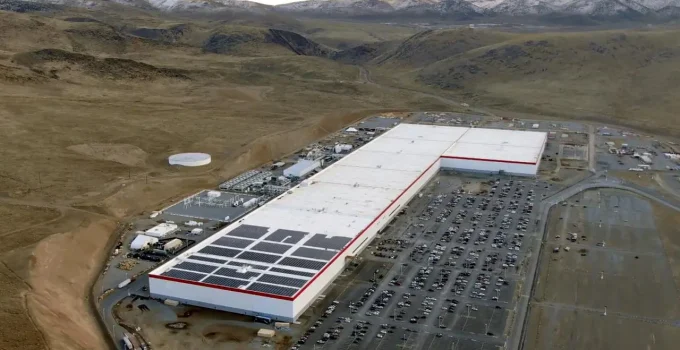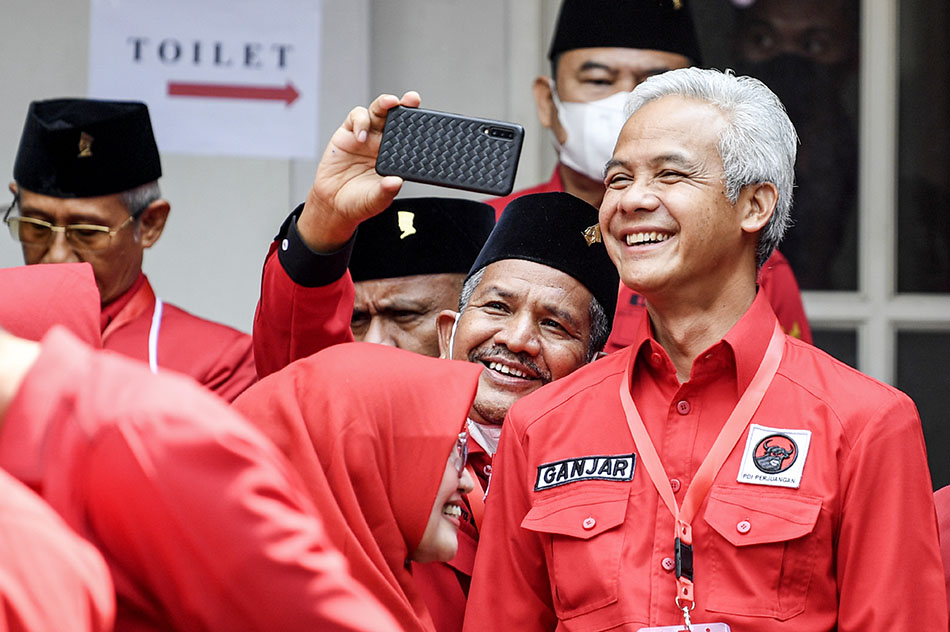Tesla’s Manufacturing Plant: The renowned electric vehicle manufacturer, is setting its sights on India as a potential location for its next production plant. With plans to invest a staggering $3 billion, the Tesla team is on the hunt for the perfect site to establish their presence in one of the world’s largest automobile markets. This move comes as no surprise, considering the increasing demand for electric vehicles in India, driven by rising concerns over air pollution and the government’s push for greener transportation solutions.
Contents
- 1 The Potential of the Indian Electric Car Market
- 2 Benefits of Setting Up a Manufacturing Plant in India
- 3 Challenges Faced by Tesla in Entering the Indian Market
- 4 Factors Considered in Selecting a Site for the Manufacturing Plant
- 5 The Proposed Investment and Economic Impact on India
- 6 Key Stakeholders and Their Role in Facilitating Tesla’s Entry into India
- 7 Government Policies and Incentives for Electric Vehicle Manufacturers
- 8 Expected Timeline for the Establishment of the Manufacturing Plant
- 9 Future Prospects for Tesla in India
- 10 Author
The Potential of the Indian Electric Car Market
India, with its massive population of over 1.3 billion people, presents a lucrative market for electric vehicles. The country is plagued by high levels of air pollution, and the need for sustainable transportation solutions has never been greater. As awareness about the environmental impact of fossil fuel-powered vehicles grows, more and more Indian consumers are turning to wdbos electric vehicles as a greener alternative. In fact, India’s electric vehicle market is projected to grow at a CAGR of over 40% in the coming years.
The Indian government has also been actively promoting electric vehicles through various initiatives, such as tax incentives, subsidies, and the establishment of charging infrastructure. These measures have further fueled the demand for electric vehicles and created a favorable environment for manufacturers like Tesla to enter the market.
However, despite the immense potential, the Indian electric car market still faces challenges. One of the main hurdles is the lack of charging infrastructure across the country. Limited access to charging stations inhibits the widespread adoption of electric vehicles, as consumers are concerned about the availability of charging facilities during their journeys. Overcoming this challenge will be crucial for Tesla’s success in India.

Benefits of Setting Up a Manufacturing Plant in India
Establishing a manufacturing plant in India offers numerous benefits for Tesla. Firstly, local production would help Tesla avoid high import duties on fully assembled vehicles, making their electric cars more competitively priced in the Indian market. This would enable Tesla to reach a wider customer base and potentially accelerate the adoption of electric vehicles in the country.
Additionally, setting up a manufacturing plant in India would create job opportunities for the local population. Tesla’s investment of $3 billion would not only bring in direct employment for the plant but also generate indirect employment through the supplier network and ancillary industries. This would contribute to the country’s economic growth and development.
Furthermore, a manufacturing plant in India would allow Tesla to tap into the country’s engineering talent pool. India is known for its skilled workforce, particularly in the field of technology and engineering. Leveraging this talent would enable Tesla to enhance its research and development capabilities, leading to innovative advancements in electric vehicle technology.
Challenges Faced by Tesla in Entering the Indian Market
While the Indian market holds immense potential, Tesla faces several challenges in entering the country. One of the key hurdles is the lack of charging infrastructure, as mentioned earlier. Tesla would need to collaborate with local partners and invest in building a robust charging network to address this issue effectively. This would involve significant capital expenditure and coordination with various stakeholders.
Another challenge Tesla may encounter is the price sensitivity of the Indian market. To be successful, Tesla would need to offer electric vehicles at competitive prices without compromising on quality. This would require optimizing production costs and sourcing components locally to reduce import-related expenses.
Additionally, Tesla would need to navigate through complex bureaucratic processes and regulations in India. Establishing a manufacturing plant involves dealing with permits, licenses, and compliance with local laws. Building strong relationships with government officials and local authorities would be crucial for Tesla to streamline these processes and ensure a smooth entry into the market.
Factors Considered in Selecting a Site for the Manufacturing Plant
The selection of a suitable site for Tesla’s manufacturing plant in India is a decision that requires careful consideration. Several factors come into play when choosing the ideal location. Proximity to major cities and transportation hubs is important for efficient logistics and distribution. Access to a skilled workforce and availability of infrastructure, such as power and water supply, are also crucial factors.
Furthermore, the availability of land and its cost play a significant role in deciding the site. Tesla would need a sizable plot for its manufacturing operations, as well as space for future expansion. Identifying a location that offers a balance between cost-effectiveness and proximity to key markets would be a strategic move for Tesla.
Another factor to consider is the presence of local suppliers and the potential for collaboration. Building strong partnerships with local suppliers would help Tesla streamline its supply chain and reduce lead times. This, in turn, would contribute to increased efficiency and cost savings.

The Proposed Investment and Economic Impact on India
Tesla’s proposed investment of $3 billion in India would have a significant economic impact on the country. Apart from creating direct employment opportunities at the manufacturing plant, the investment would stimulate job growth in the supplier network and ancillary industries. This would have a multiplier effect on the economy, generating income and improving the standard of living for many.
The investment would also attract other foreign investors and contribute to India’s image as a favorable destination for manufacturing investments. This would further boost the country’s economic growth and development.
Moreover, the establishment of Tesla’s manufacturing plant in India would contribute to the government’s Make in India initiative. This initiative aims to promote domestic manufacturing and reduce dependence on imports. Tesla’s presence in India would align with this vision and encourage other manufacturers to explore opportunities in the country.
Key Stakeholders and Their Role in Facilitating Tesla’s Entry into India
Several key stakeholders play a crucial role in facilitating Tesla’s entry into the Indian market. The central and state governments have a pivotal role in providing a conducive business environment through favorable policies and incentives. The government’s support in terms of infrastructure development, simplification of regulatory processes, and provision of financial incentives would be instrumental in attracting Tesla and other electric vehicle manufacturers to India.
Additionally, local authorities, such as municipal corporations and state industrial development corporations, would play a significant role in providing necessary approvals and ensuring the availability of essential infrastructure at the chosen site. Collaborating with these stakeholders and building strong relationships would be essential for Tesla’s successful entry into the Indian market.
Furthermore, local suppliers and industry associations would also contribute to Tesla’s operations in India. Building partnerships with reliable suppliers and leveraging the expertise of industry associations would help Tesla streamline its supply chain and navigate through the challenges of the Indian market.
Government Policies and Incentives for Electric Vehicle Manufacturers
The Indian government has implemented several policies and incentives to promote the adoption of electric vehicles and encourage manufacturing in the sector. The Faster Adoption and Manufacturing of Electric Vehicles (FAME) scheme, launched in 2015, provides financial incentives for the purchase of electric vehicles and supports the establishment of charging infrastructure.
In addition to the FAME scheme, the government has also announced various tax incentives and subsidies to promote electric vehicle manufacturing. These include exemptions from customs duty on key components used in electric vehicles and tax benefits for companies investing in research and development in the sector.
Furthermore, the government has set ambitious targets for electric vehicle adoption in the country. The National Electric Mobility Mission Plan (NEMMP) aims to have 30% of all vehicles on Indian roads running on electricity by 2030. This long-term vision provides a clear roadmap for manufacturers like Tesla and instills confidence in the market potential.
Expected Timeline for the Establishment of the Manufacturing Plant
While an exact timeline for the establishment of Tesla’s manufacturing plant in India is yet to be announced, it is expected that the company will work swiftly to capitalize on the growing demand for electric vehicles in the country. Tesla’s CEO, Elon Musk, has expressed his enthusiasm for the Indian market and has previously mentioned plans to launch Tesla cars in India as soon as possible.
Considering the scale of the investment and the complexities involved in setting up a manufacturing plant, it is likely that Tesla will take a phased approach. This would involve identifying the site, acquiring the necessary approvals, and gradually ramping up production to meet the demand. However, given Tesla’s track record of innovative practices and speedy execution, it is safe to assume that they will make every effort to expedite the process.

Future Prospects for Tesla in India
Tesla’s foray into the Indian market holds immense promise for both the company and the country. The demand for electric vehicles in India is on the rise, driven by environmental concerns and government support. Tesla’s investment of $3 billion in establishing a manufacturing plant would not only boost the adoption of electric vehicles but also contribute to job creation and economic growth.
However, Tesla also faces challenges in entering the Indian market, such as the lack of charging infrastructure and price sensitivity. Overcoming these hurdles would require strategic partnerships, efficient supply chain management, and a deep understanding of the local market dynamics.
Nevertheless, with the right approach and collaboration with key stakeholders, Tesla has the potential to revolutionize the Indian automotive industry and solidify its position as a global leader in the electric vehicle market. As Tesla explores potential sites and works towards establishing its manufacturing plant in India, the anticipation grows over the positive impact it could have on the local economy and the country’s pursuit of a cleaner, greener future.
If you found this article insightful, we invite you to explore another fascinating read on the delectable world of potato chips, showcasing how even the simplest pleasures can offer intriguing insights. Happy reading!




